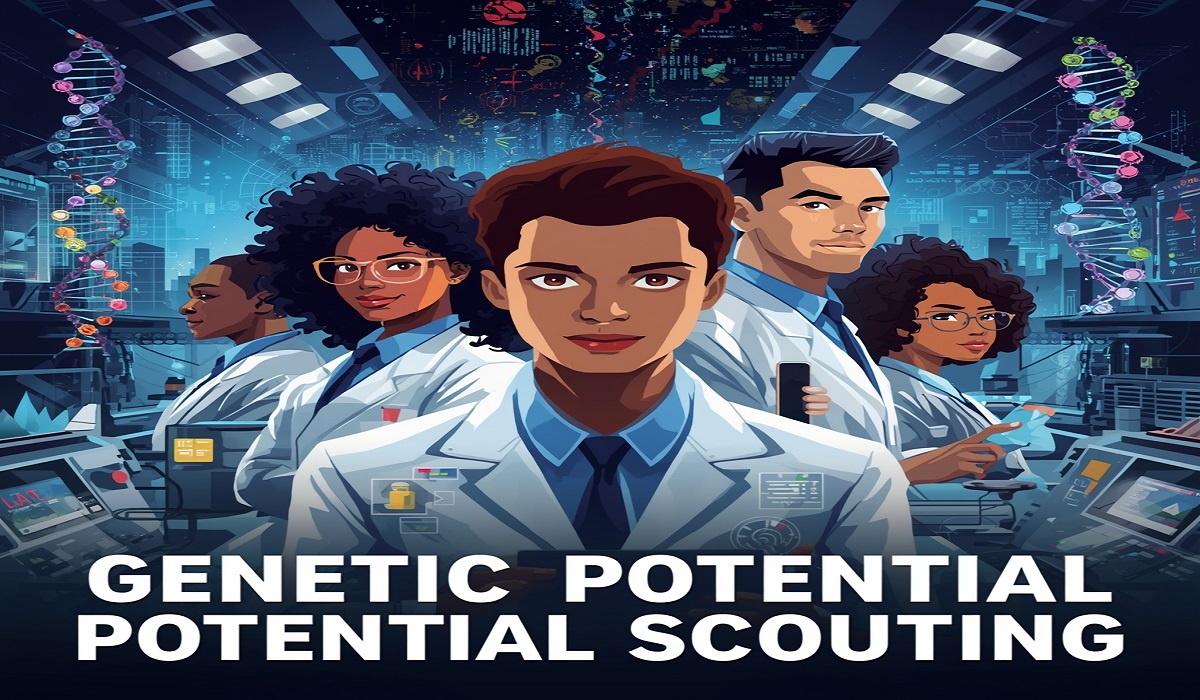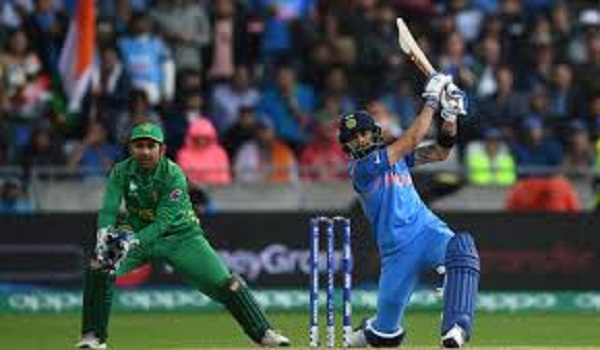Genetic Potential Scouting
Genetic Potential Scouting: Imagine a world where a simple cheek swab from a child can tell a sports club if they are a future champion. This is not science fiction anymore. The field of genetic potential scouting is growing fast. It uses genetic testing to try and find young people with a natural ability for sports or other skills.
This practice raises big questions about fairness, privacy, and our future. This article will walk through the real-world implications of the ethics of genetic potential scouting. We will look at the latest discussions shaping this controversial field. Our goal is to provide a clear and balanced view of the ethics of genetic potential scouting – latest debates, helping you form your own informed opinion on this complex subject.
What is Genetic Scouting in Sports and Beyond?
Genetic potential scouting is the process of analyzing a person’s DNA to predict their likelihood of excelling in a specific area, most commonly in athletic performance. Scouts and organizations look for certain gene variants linked to muscle type, oxygen use, and injury risk. The idea is to identify talent much earlier than traditional methods, sometimes even in very young children.
This approach moves beyond just watching a child play. It tries to see the biological blueprint they were born with. Some companies now offer direct-to-consumer tests that promise insights into a child’s athletic genetic potential. This creates a new layer of information for parents and coaches. However, this also starts the conversation about the ethics of genetic potential scouting right at the family level.
- The science behind it: Tests often look for genes like ACTN3, which is linked to fast-twitch muscles for sprinting, and ACE, associated with endurance. It is crucial to remember that these genes are just one piece of a very large puzzle.
- Beyond sports: The same principles are now being explored for cognitive abilities, musical aptitude, and other talents, widening the scope and urgency of the ethical debate.
The Promise: Potential Benefits of Genetic Identification
Supporters of this technology point to several possible advantages. One significant benefit is personalized training. Understanding a young athlete’s genetic potential can help coaches create training plans that fit their body’s specific needs. This could lead to better performance and lower the chance of injuries.
Another benefit is early talent spotting. In large populations, genetic tests could help find children with natural ability who might otherwise be missed. This could open doors for them and provide opportunities they may not have had. It can also help manage expectations, giving families a more realistic view of the path ahead.
These potential positives are often used to justify the expansion of genetic potential scouting. The latest research in personalized medicine is often cited to show how understanding our DNA can lead to better outcomes.
- Improved safety: Identifying genetic markers for a higher risk of certain injuries (like concussions or heart issues) could allow for preventative measures.
- Efficient resource allocation: Sports academies with limited funding could, in theory, use genetic information to make more informed decisions about which athletes to invest in.
The Peril: Significant Ethical Concerns and Risks
This is where we encounter the core of the ethics of genetic potential scouting. The risks and moral problems are substantial. The biggest concern is the creation of a “genetic underclass.” Children whose tests do not show “elite” potential could be ignored, excluded, or discouraged from participating in sports altogether. This contradicts the very spirit of sports and personal effort.
Privacy is another massive issue. Genetic data is extremely sensitive and personal. Who owns this data? A child’s DNA results could be stored by a club or company and potentially used against them later in life, affecting their ability to get health insurance or even a job.
The practice of genetic potential scouting raises the frightening prospect of biological discrimination from a very young age. Discussing the ethics of genetic potential scouting – latest developments means confronting these serious privacy dangers.
- Psychological pressure: A child labeled as a “future star” based on their DNA may face immense pressure, while another deemed “lacking potential” could suffer from crushed self-esteem.
- Reductionism: This practice reduces a complex human being to a set of genes, ignoring the critical roles of passion, coaching, perseverance, and luck in any success story.
The Child’s Perspective: Consent and Autonomy
A central question in the ethics of genetic potential scouting is about consent. A young child cannot understand what having their DNA tested means for their future. Parents and scouts are making a life-altering decision on their behalf. This takes away the child’s right to choose their own path and define their own identity.
This lack of autonomy is a profound ethical problem. A child might not want to be a soccer player, but their genetic report could push them in that direction for years. This process can steal the joy of discovering what they truly love.
The latest guidelines in pediatric bioethics strongly emphasize protecting a child’s open future, a principle that genetic potential scouting directly challenges. The conversation about the ethics of genetic potential scouting must always center on the child’s rights.
- Informed consent is impossible: A seven-year-old cannot grasp the long-term implications of genetic data being in a database.
- The right to an open future: Decisions made by adults based on genetics can permanently close doors for a child before they are even old enough to see what those doors are.
Navigating the Future: Regulation and Responsible Practices
Given these major concerns, how should society move forward? The need for strict regulation is clear and urgent. We must create rules that govern how genetic information is collected, used, and stored in scouting. This is a key part of the ongoing discussion about the ethics of genetic potential scouting – latest policy proposals.
One responsible practice is to delay testing until a person is old enough to give their own informed consent. Another is to ban the use of genetic testing for selecting children for sports teams or academies. Education is also vital.
Parents, coaches, and young athletes need to understand that genes are not destiny. They are a starting point, not a final verdict. Promoting this balanced view is essential for navigating the ethics of genetic potential scouting responsibly.
- Transparency: Companies and clubs must be completely transparent about how they use genetic data and who has access to it.
- Legal protections: New laws are needed to prevent genetic discrimination in all areas of life, especially for children involved in sports.
A Broader View: Genetics Versus Hard Work and Environment
It is vital to remember a fundamental truth: no gene is a guarantee of success. Genetic potential scouting can only identify a possibility. Countless factors determine whether that possibility becomes reality. A child’s environment, access to good coaching, nutritional support, and, most importantly, their own dedication and love for the activity are what truly matter.
History is filled with legendary athletes who supposedly lacked the “right” body type or genetics but succeeded through sheer will and hard work. Over-reliance on genetic data could cause us to miss these exceptional individuals. The debate on the ethics of genetic potential scouting often misses this point. True talent is a mix of nature, nurture, and an unmeasurable spark of human spirit.
- The power of practice: Decades of research show that deliberate, focused practice is a more reliable predictor of expertise than innate talent.
- The role of opportunity: A child with “perfect” athletic genes may never excel if they lack access to facilities, coaching, or community support.
Frequently Asked Questions
1. Is genetic potential scouting legal?
The legality varies greatly by country and region. In many places, there are few specific laws addressing it, creating a “wild west” situation. This legal gray area is a primary reason why the discussion about the ethics of genetic potential scouting is so urgent.
2. Can a genetic test really predict if my child will be a great athlete?
No, it cannot. These tests can only indicate a higher or lower probability for certain physical traits, like muscle composition. They cannot measure heart, determination, or skill, which are far more important for becoming a great athlete.
3. What are the biggest dangers for the child?
The biggest dangers are psychological pressure, loss of privacy, being unfairly excluded from opportunities, and having their identity defined by a DNA report instead of their own choices and efforts.
4. Are there any sports that currently use this?
While not widespread officially, some youth academies and private organizations are known to experiment with genetic testing. The latest reports suggest its use is growing, especially in unregulated markets.
5. As a parent, what should I do if offered a genetic test for my child?
Ask critical questions. Find out who will see the data, how it will be stored, and what it will be used for. Consider waiting until your child is old enough to be part of the conversation. Remember that a test cannot measure your child’s passion or joy for the game.
Conclusion
The ethics of genetic potential scouting present a significant challenge for our modern world. While the technology offers intriguing possibilities, the ethical risks to children’s privacy, autonomy, and fair treatment are simply too large to ignore. Our focus should remain on creating a supportive environment for all young people to explore their interests and develop their skills, regardless of their genetic code.
The future of sports and talent development should be built on effort, inclusion, and the human spirit, not on a predetermined analysis of a DNA sequence. The ongoing conversation about the ethics of genetic potential scouting – latest developments must guide us toward a future that protects our children while encouraging their highest achievements.









